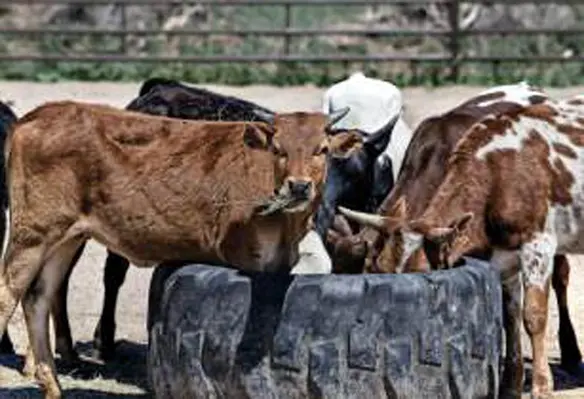A new research project by the International Livestock Research Institute (ILRI) to improve fodder market performance and quality has been launched in East Java, Indonesia
The project will identify factors that affect the use or non-use of local feeds and forage materials by ruminant producers. It will be carried out in targeted zones where beef and dairy production is concentrated. Data will be collected on fodder production, exchange mechanism of feeds and fodder and markets. Researchers will also seek information on fodder producers, performance of fodder markets in terms of supply and demand as well as weaknesses in the market chains. Potential channels and solutions to improve market performance and improved utilisation of quality feed and storage will also be sought.
Partners in the project will include the Australian Centre for International Agricultural Research, BPTP Jawa Timur, Indonesian Agency for Agricultural Research and Development and Indonesia’s Ministry of Agriculture.
While more than 60 per cent of livestock in Indonesia is raised in East Java, the region experiences scarcity of feed and fodder for sustainable development. More than three-quarters of the land has been put under crops leaving livestock to depend on abundant crop residues and by-products such as rice straw and maize stovers. Many livestock producers cannot obtain enough feed supplies on their farms or communal resources, significantly affecting beef and milk production in the region.
According to the Food and Agricultural Organisation (FAO), only 40 per cent of Indonesia’s milk is produced locally with the rest being imported from Australia and New Zealand. The government has placed various regulations for the dairy industry such as import ratios, import tariff, import licensing restriction to promote the dairy sub-sector. Low beef production nationally has also forced Indonesia to rely on imports, according to researchers.
Official data indicates that per capita beef consumption has been increasing in the last decade partially due to urbanisation, modern retail penetration and expanding middle class estimated around 30mn, in a nation of 250mn people. This has made the country an attractive market for beef and processed beef products.
Analysts have noted that Indonesia must boost the capacity of local beef and milk producers to reduce over-reliance on imports as the middle class grows increasing demand for animal proteins. “Investment in livestock research and development may be one of the best options to help farmers adopt improved technologies and farm management practices and provide farmers with easier market access,” observed Dr. Risti Permani, a Global Food Studies research fellow in the Faculty of Professions at the University of Adelaide.
Mwangi Mumero




